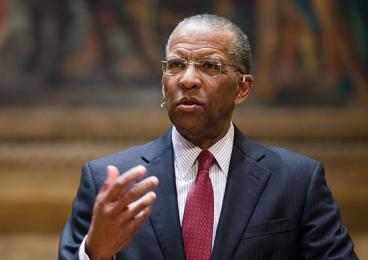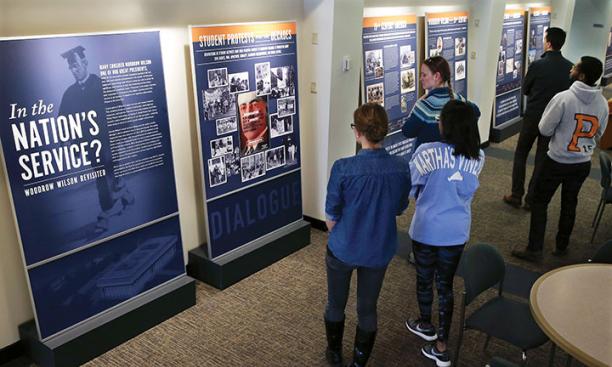


The University’s board of trustees has rejected a call by a student activist group to remove the name of Woodrow Wilson 1879 from the School of Public and International Affairs and one of Princeton’s residential colleges because of his views and actions on race. But the board said the University must be “honest and forthcoming” about its history and recognize Wilson’s “failings and shortcomings” as well as his achievements.
At the same time, the board said the controversy over Wilson’s legacy was “emblematic of larger concerns” about the University’s commitment to diversity and inclusivity. Efforts should be “redoubled” to ensure that Princeton “embraces, respects, and values all members of its on-campus and alumni communities,” the trustees said, and a new board committee will monitor the progress.
The renaming issue was raised by the Black Justice League — citing Wilson’s record on racial issues as both University president and U.S. president — during a 33-hour sit-in in November at President Eisgruber ’83’s office in Nassau Hall.
A special committee of the trustees was created to consider Wilson’s legacy and whether Princeton should change how it recognizes that legacy. The full board endorsed the committee’s 13-page report (http://bit.ly/wilson-report), and it was released April 4.
The board approved these actions:

Eisgruber said in a statement that he agreed fully with the committee’s recommendations and that implementation of the new initiatives will begin immediately. “While I continue to admire Wilson’s many genuine accomplishments, I recognize the need to describe him in a way that is more balanced, and more faithful to history, than this University and I have previously done,” he said.
The committee said that it had heard from more than 700 people through online comments and in meetings on campus. Supporters of changing the name of the Wilson School and/or Wilson College were in the minority, the board said.
Not all members of the special trustee committee agreed that Wilson’s name should remain on the school and the college, the report said, “but in the end our collective judgment was that the names should not be changed.” Brent Henry ’69, chair of the committee, said there were no dissents from the report by members of the committee or of the full board.
The Black Justice League said in a statement that it was disappointed but not surprised by the trustees’ actions. “Princeton’s decision today demonstrates unambiguously its commitment to symbols and legacies of anti-Blackness in the name of ‘history’ and ‘tradition’ at the expense of the needs of and in direct contravention with the daily experiences of Black students at Princeton,” the statement said.